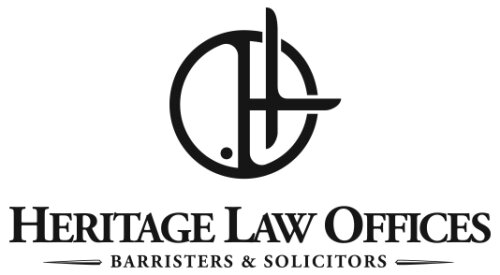Best Child Support Lawyers in Edmonton
Share your needs with us, get contacted by law firms.
Free. Takes 2 min.
Free Guide to Hiring a Family Lawyer
List of the best lawyers in Edmonton, Canada
About Child Support Law in Edmonton, Canada
In Edmonton, Canada, child support refers to the financial support that is allocated for the upbringing of a child. This monetary commitment is made by a parent who does not live with the child most of the time. The parent who lives with the child usually receives the support. It is meant to cover a wide range of expenses, including day-to-day living cost, education, health care, and other special needs.
Why You May Need a Lawyer
Child support matters can become complex if there are disagreements over custody, visitation rights, or an existing order's modification. Sometimes, a parent may refuse to pay, leaving the other parent with the burden of child expenses. In such cases, a child support attorney can provide needed advice and representation to ensure a fair outcome.
Local Laws Overview
The Alberta Family Law Act governs child support in Edmonton. Here, child support is the right of the child, and both parents are obligated to contribute according to their income. The amount of child support is determined chiefly by the paying parent's income, the number of children involved, and the residency arrangements of the children. Specifically, the Federal Child Support Guidelines provide the base amount of child support expected.
Frequently Asked Questions
1. Does the parent's new partner's income affect child support?
Generally, a new partner's income does not influence child support because child support is the sole responsibility of the biological parents.
2. Can child support be modified?
Yes, if there's a change in circumstances, such as a significant change in the paying parent's income or a change in the child's needs, you can request a modification.
3. Until what age is child support payable?
Child support is typically payable until the child turns 18. However, in some cases, it may continue if the child is still in school or unable to be self-supporting due to a disability.
4. What happens if a parent refuses to pay child support?
If a parent refuses to pay child support, the Maintenance Enforcement Program (MEP) can take several actions to enforce the order, including wage garnishing, suspension of driver's licence, or even imprisonment.
5. Can I claim child support payments on my taxes?
No, in Canada, child support payments are not tax-deductible for the payer or considered taxable income for the recipient.
Additional Resources
The Alberta Ministry of Justice and Solicitor General's Family Law website offers resources including self-help kits, FAQs, and legal procedure descriptions. Additionally, individuals can contact the Maintenance Enforcement Program (MEP) for information about enforcing and collecting child support.
Next Steps
If you need legal assistance with child support matters, a wise first step is to consult an experienced family law attorney. This professional can provide valuable guidance based on your specific circumstances, potentially helping you avoid costly and time-consuming mistakes during the process.
Lawzana helps you find the best lawyers and law firms in Edmonton through a curated and pre-screened list of qualified legal professionals. Our platform offers rankings and detailed profiles of attorneys and law firms, allowing you to compare based on practice areas, including Child Support, experience, and client feedback.
Each profile includes a description of the firm's areas of practice, client reviews, team members and partners, year of establishment, spoken languages, office locations, contact information, social media presence, and any published articles or resources. Most firms on our platform speak English and are experienced in both local and international legal matters.
Get a quote from top-rated law firms in Edmonton, Canada — quickly, securely, and without unnecessary hassle.
Disclaimer:
The information provided on this page is for general informational purposes only and does not constitute legal advice. While we strive to ensure the accuracy and relevance of the content, legal information may change over time, and interpretations of the law can vary. You should always consult with a qualified legal professional for advice specific to your situation.
We disclaim all liability for actions taken or not taken based on the content of this page. If you believe any information is incorrect or outdated, please contact us, and we will review and update it where appropriate.











